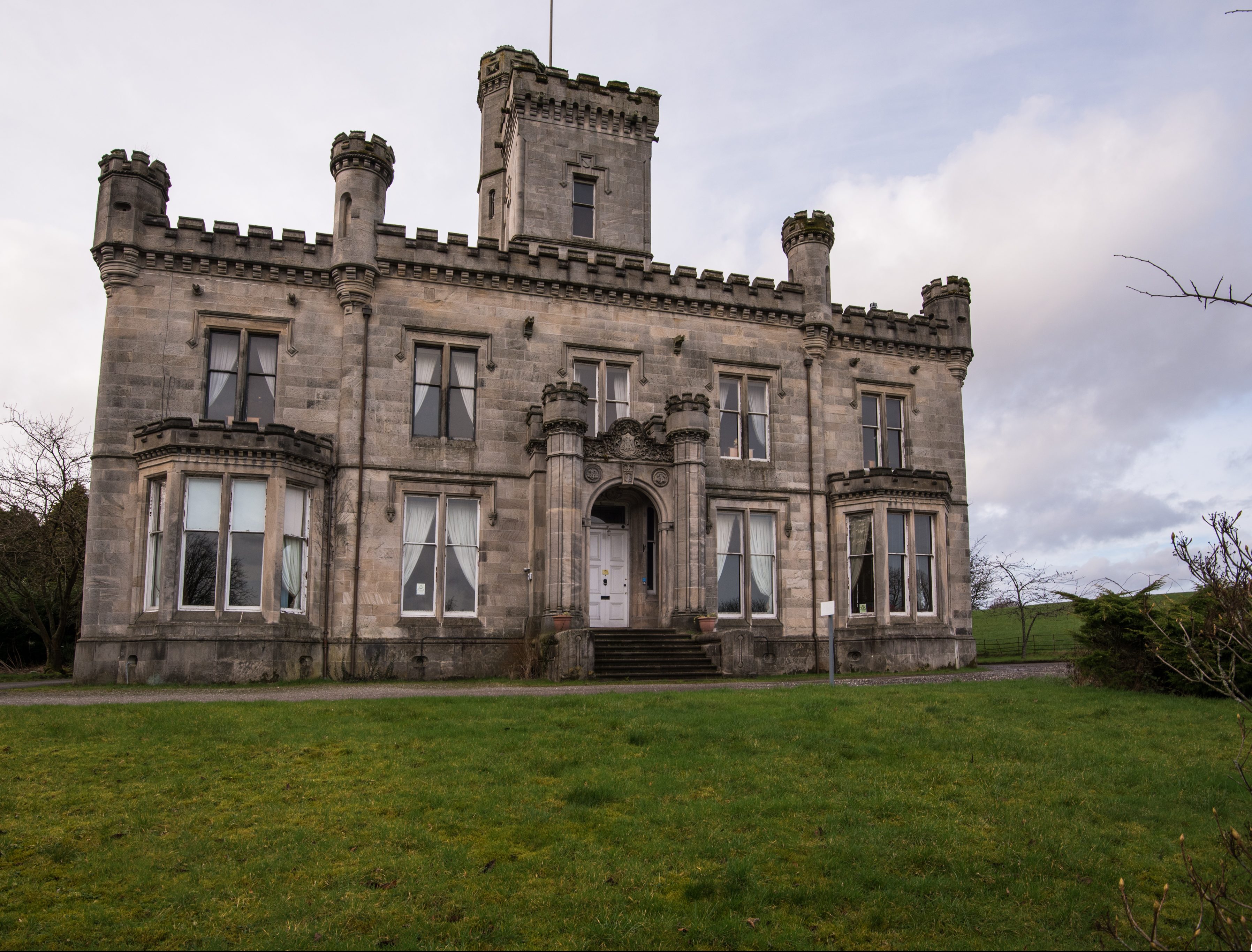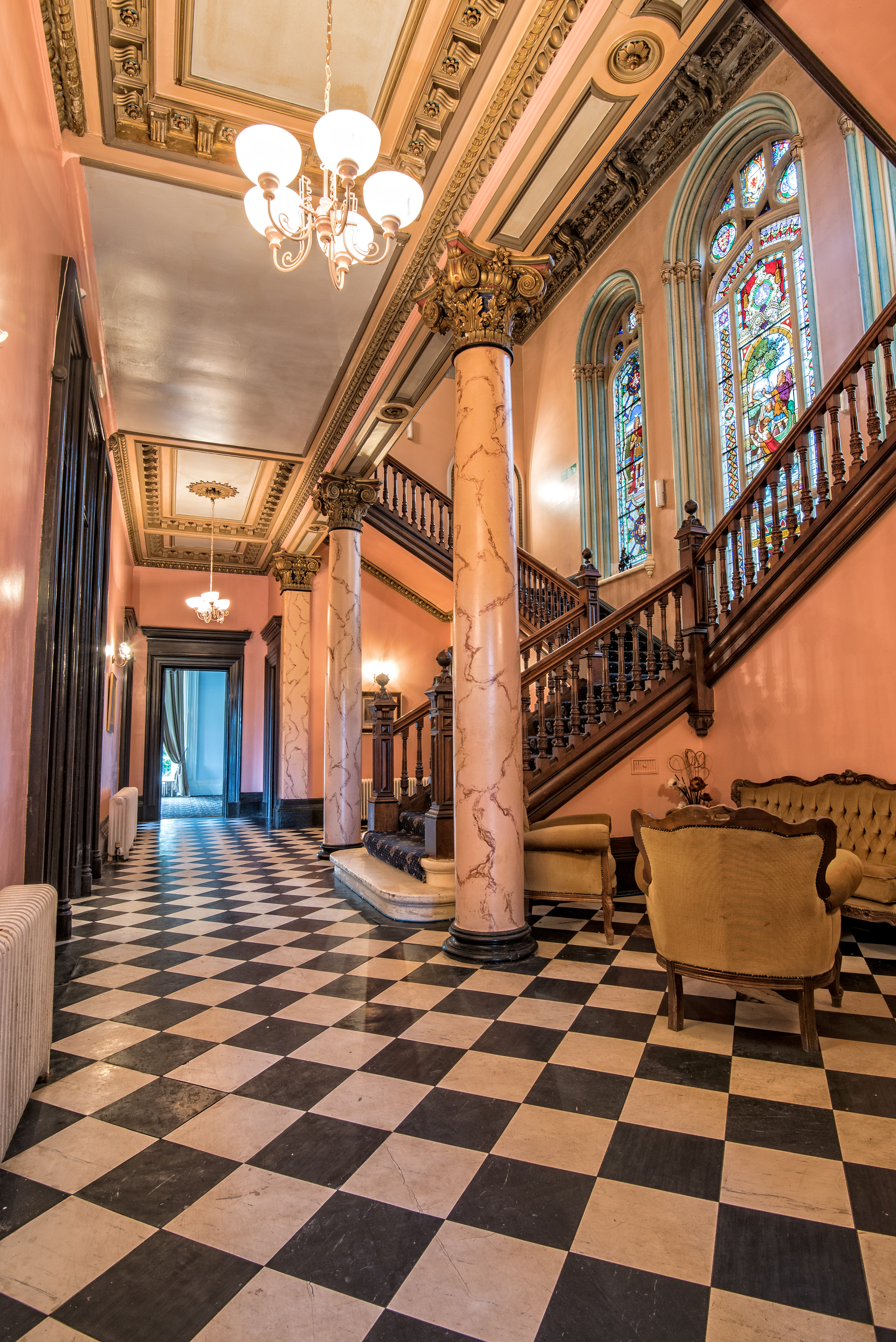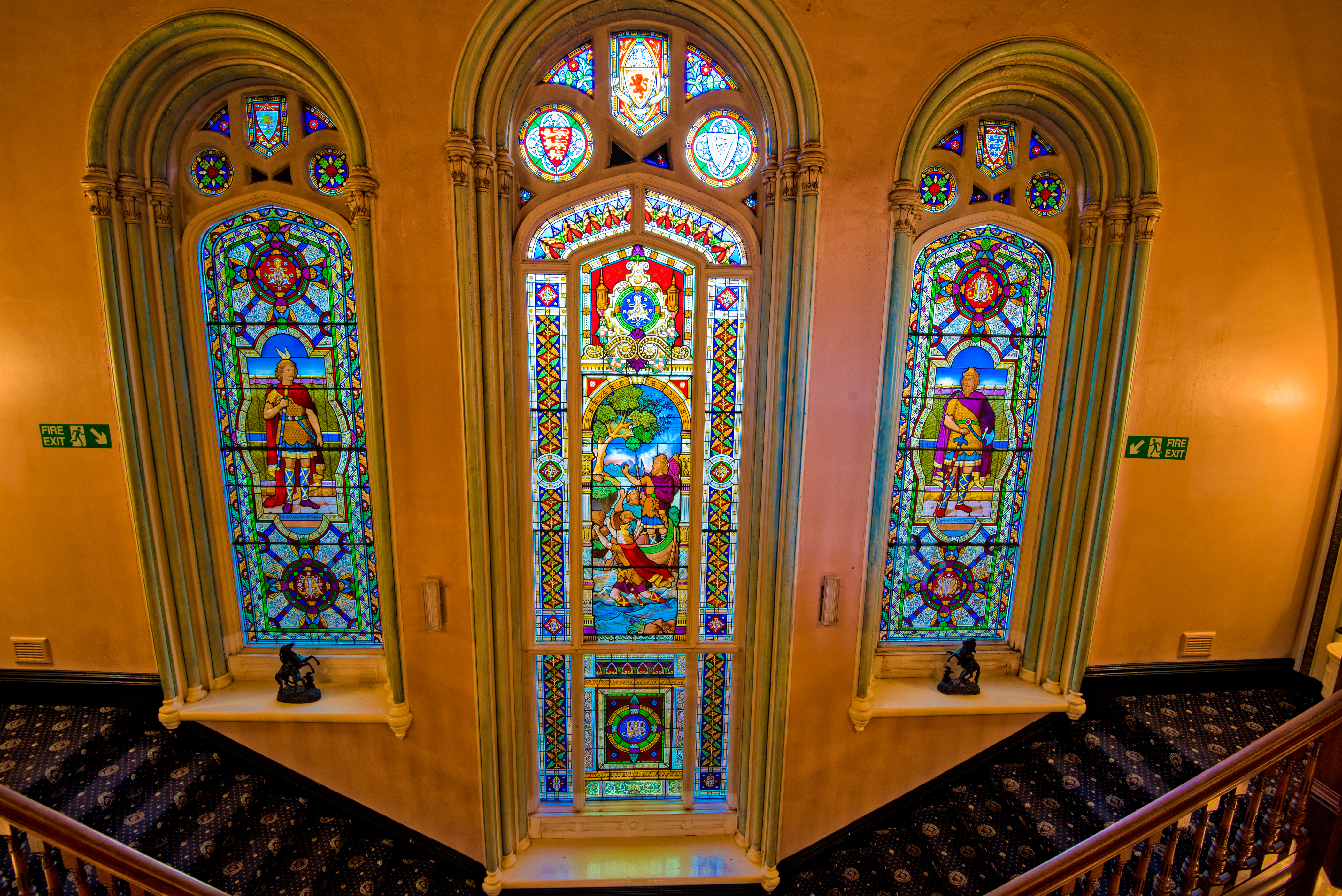A CASTLE on land once used for hunting by Robert the Bruce has had its selling price slashed almost by half – from £1.7m to £900,000.
Dalmoak Castle in Dumbarton, West Dunbartonshire, was put on sale last year by House Simple for £1,680,000.
The property – built in the 1860s and boasting what may be the biggest stained glass window in a private UK home – is now on sale by Savills for just £895,000.
The reason for the 47% price cut remains unclear but experts have recently blamed the Scottish government’s new land tax for damaging sales of high end properties.
Dalmoak, which has 16 bedrooms, features stained glass windows, the largest of which is around 10ft high by three feet wide.
Previous sellers House Simple said the glass panels depicted members of the family who onced lived the there.
They were created by glaziers WG and JJ Kier, early stained glass producers known for their work at Glasgow Cathedral.
The estate itself is steeped in history from the 13th century to the Second World War.

It appears in charters and books from the middle ages onwards and it was part of the Robert the Bruce’s hunting park during the 13th and 14th centuries.
The current building was built by wine and spirit merchant John Aitken and the house became known locally at the time as ‘brandy castle’.
During the Second World War, the Royal Air Force used Dalmoak Castle as a local headquarters where they partitioned the rooms, and erected Nissen Huts in the grounds.
More recently the huge property was restored and refurbished during the 1990s and converted into an elderly care home.
House Simple said in their original sales details: “The stained glass windows are really fascinating.
“The pictorial and decorative detailing is extraordinary. And it seems as if all the family members have been represented in the entwining monograms.
“This window is thought to be the largest in a private house in the United Kingdom.”
The property, a largely symmetrical castellated mansion house with a tall tower, is described as “lavish”.

According to House Simple, the property features a central hall with an imperial stair, a drawing room with sumptuous ceiling plaster work and scagliola columns, and an elegant dining room.
“The ceiling, hearths and mirrors of the main rooms are grand. It would also make a fine family home that it once was without much expense.”
House Simple said today they could not shed any light on the dramatic price cut.
A spokesman said: “Due to our company policy and data protection regulation we cannot give you a lot of information for why the property didn’t sell.
“But, we can tell you we had number of interested parties in the property but none were in a procedural position to purchase.”
The price cut will save the eventual buyer a fortune in the Scottish Government’s Land and building Transaction Tax (LBTT), which the SNP introduced in 2015 to replace Stamp Duty.
The LBTT on the original £1.7m price would have been £162,350 – more than the average price of a home in Scotland – taking the total to £1.86m. The price cut reduces that bill to by almost £100,000 to £65,750.
Richard Loudon, a partner at Simpson & Marwick, said last month that the Scottish market is still stagnating around the £600,000 mark as the public learn the LBTT is here to stay.

A spokesman for Savills pointed out the price was “offers over”, meaning it could sell for more than the stated price.
He said the price was “based on a number of factors, including the home report valuation and the fact that this incredibly beautiful A-listed property requires some upgrading”.
The spokesman added: “It is attracting a great deal of interest, due to its lovely setting and architectural appeal.”
Rettie and Co, in a report reviewing the housing market in Scotland published on March 8, revealed there were 159 sales of homes worth over £1m in Scotland last year, down from 166 in 2016, and 176 the year before that.
John Boyle, Rettie’s director of research and strategy, said: “LBTT has not helped – the size of the tax bill just for moving is now over £78k on a £1m house and over £108k if it is a second home.”
